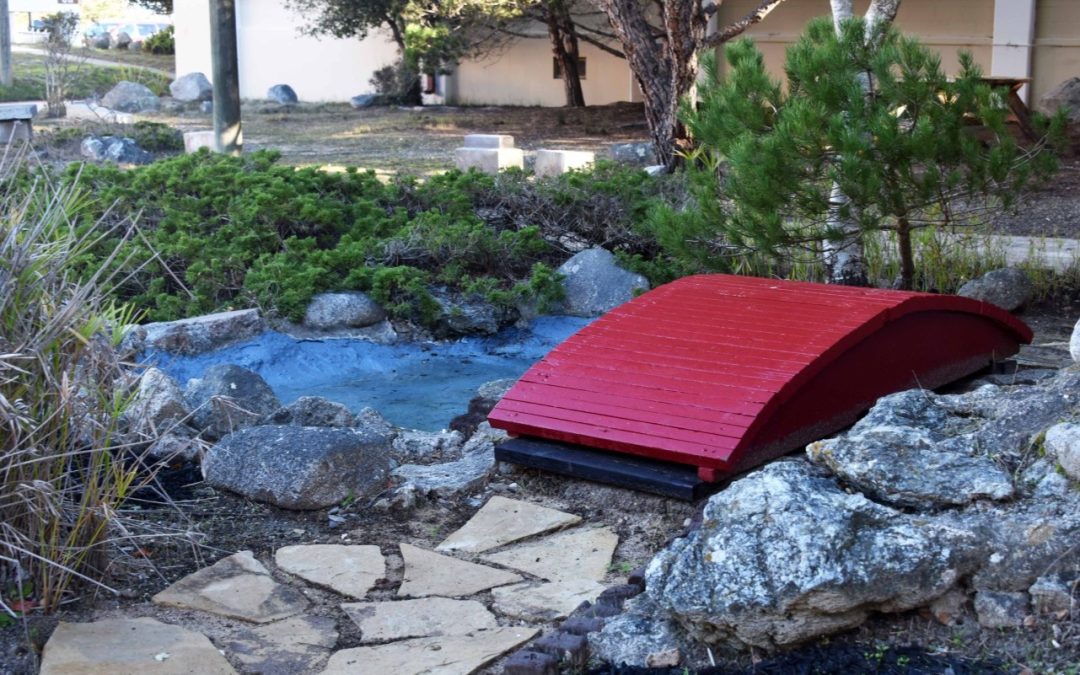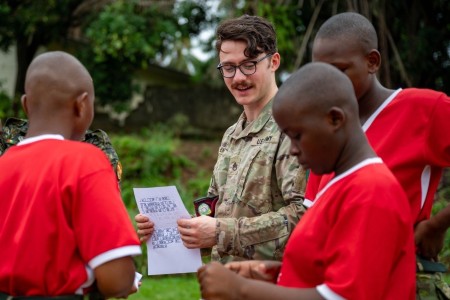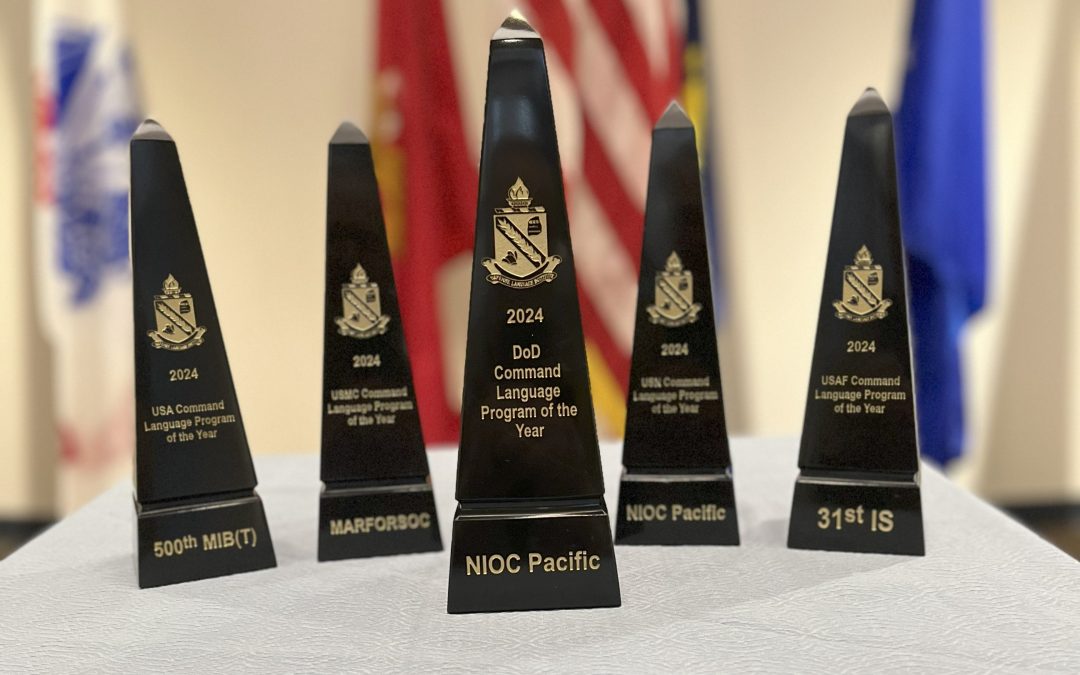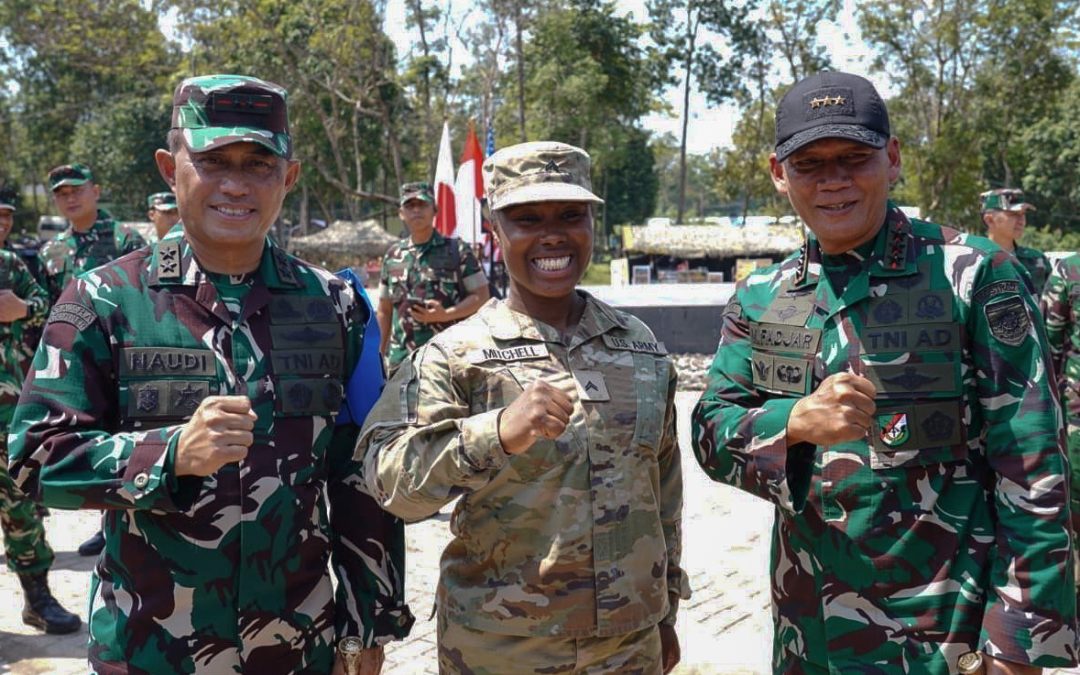By Tammy Cario
More than 200 newly minted foreign area officers and their spouses from across the Department of Defense descended on the Weckerling Center for the semi-annual joint FAO course held June 21 – 24, 2021 on the Presidio of Monterey.
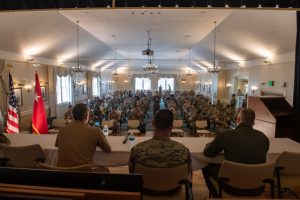
Foreign area officers listen in on a panel session during the joint FAO course held at the Presidio of Monterey June 21-24, 2021. (Photo by Leonardo Carrillo)
The week-long course is designed to offer general orientation to the FAO profession for young captains and majors who just began their new career field. The course consists of workshops with guest lecturers who are experts in the field of foreign affairs and specialize in regional political topics, operations, and security cooperation.
“The JFAOC is important because we have officers from across the services who, for the first seven to 10 years of service, have basically focused, tactically, just inside their service and have lived at nearby installations,” said Army Lt. Col. Dan Bolton, Defense Language Institute Foreign Language Center FAO Program Director.
Now, Bolton said, they will be sent to places where they will be working in a joint environment heavy on interagency cooperation, oftentimes far away from a military instillation.
“This course gives them the chance to network with their peers across the joint force and to meet senior FAOs,” he explained. It’s also a chance for spouses to learn about this new lifestyle from other experienced spouses.
One of those senior FAOs was Air Force Col. Lawrence Pravecek, chief of the International Airmen Division.
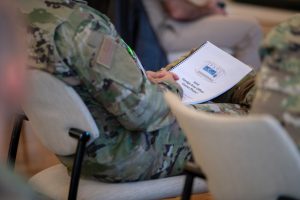
A foreign area officer sits in on a session during the joint FAO course held at the Presidio of Monterey June 21-24, 2021. (Photo by Leonardo Carrillo)
“We run the spectrum from cooperating and working with bilateral allies,” Pravecek said, all the way to the other end of the scale, where the U.S. wants to beat the competition around the world.
During a session, Pravecek told a story of what these new FAOs might expect to be doing overseas. While stationed in Uruguay, he said, “I got to fight the North Koreans from my desk.”
Through local contacts, Pravecek was able to confirm that there were two Taiwanese fishing boats with North Korean fisherman in an Uruguayan port. Working in coordination with the State Department and Uruguay, they removed 150 fisherman, primarily from North Korea, who were violating international sanctions and committing labor rights abuses.
“That’s the kind of stuff you guys are going to do on a regular basis,” he said.
FAOs, who come from the four branches of the U.S. military, are regionally focused and are considered experts on political-military issues. FAOs typically begin their careers at the one-week course. Once their FAO training is completed, which includes language training and graduate school in a regionally focused topic, they are expected to serve as defense attachés, security cooperation officers and political-military planners worldwide.
“In a lot of places, we’re the most important relationship,” said Pravecek. “Advocating for the U.S. as the partner of choice is a full-time job.”

